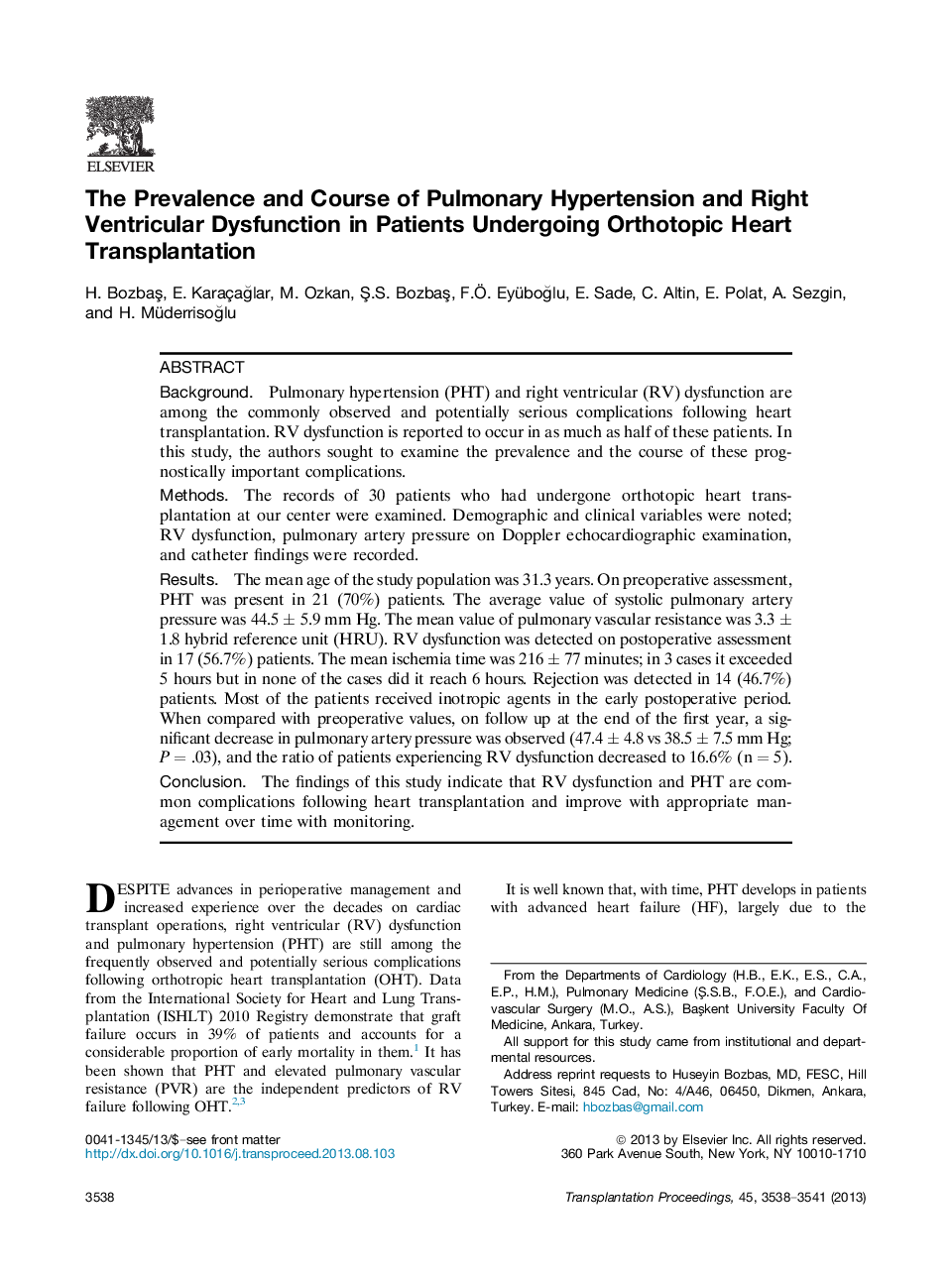| Article ID | Journal | Published Year | Pages | File Type |
|---|---|---|---|---|
| 4256520 | Transplantation Proceedings | 2013 | 4 Pages |
BackgroundPulmonary hypertension (PHT) and right ventricular (RV) dysfunction are among the commonly observed and potentially serious complications following heart transplantation. RV dysfunction is reported to occur in as much as half of these patients. In this study, the authors sought to examine the prevalence and the course of these prognostically important complications.MethodsThe records of 30 patients who had undergone orthotopic heart transplantation at our center were examined. Demographic and clinical variables were noted; RV dysfunction, pulmonary artery pressure on Doppler echocardiographic examination, and catheter findings were recorded.ResultsThe mean age of the study population was 31.3 years. On preoperative assessment, PHT was present in 21 (70%) patients. The average value of systolic pulmonary artery pressure was 44.5 ± 5.9 mm Hg. The mean value of pulmonary vascular resistance was 3.3 ± 1.8 hybrid reference unit (HRU). RV dysfunction was detected on postoperative assessment in 17 (56.7%) patients. The mean ischemia time was 216 ± 77 minutes; in 3 cases it exceeded 5 hours but in none of the cases did it reach 6 hours. Rejection was detected in 14 (46.7%) patients. Most of the patients received inotropic agents in the early postoperative period. When compared with preoperative values, on follow up at the end of the first year, a significant decrease in pulmonary artery pressure was observed (47.4 ± 4.8 vs 38.5 ± 7.5 mm Hg; P = .03), and the ratio of patients experiencing RV dysfunction decreased to 16.6% (n = 5).ConclusionThe findings of this study indicate that RV dysfunction and PHT are common complications following heart transplantation and improve with appropriate management over time with monitoring.
